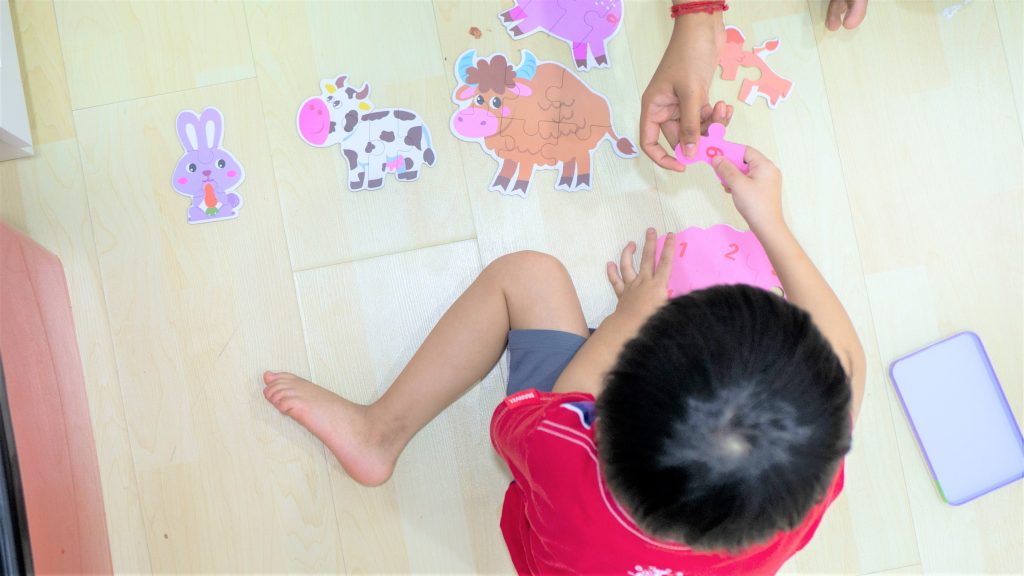Understanding Special Needs Children

"Special kids" or "special needs children" is an umbrella term referring to children who have an array of mental, physical, or psychological diagnoses and disabilities that affect a child's function and behavior.
Children labelled "special needs" could have a mild learning disorder to a severe illness, because of this they may need extra support, guidance, and care to meet their needs.

As the term is rather broad, to let you understand better, here are the different types of special needs:
- Sensory issues
- Some children might have difficulties in hearing, seeing, speaking or smelling. They might also feel an imbalance of sensory input, such as feeling things too strongly or too mildly. While most of these can be rehabilitated, some may be lifelong and require therapy and continuous support.
- Learning Disabilities
- Learning disabilities in children interfere with their learning of basic skills such as reading, writing and solving mathematical problems, along with higher level skills such as organization, reasoning and long-term memory. Some examples of a learning disability would be dyslexia (trouble reading) and dyscalculia (trouble with math)
- Developmental Disability
- Delayed or abnormal development, usually lifelong and affects a child's day to day functions. This includes Autism Spectrum Disorder, Global Developmental Disorder, Asperger's Syndrome, and Down Syndrome. Children with these disorders will need to undergo extensive physical, speech, and occupational therapy to improve their conditions.
- Behavioral Issues
- Children with behavioral issues can be hard to deal and are challenging as they do not respond to typical care and discipline. The most common disruptive behavior disorders include oppositional defiant disorder (ODD), conduct disorder (CD) and attention deficit hyperactivity disorder (ADHD). These three behavioral disorders share some common symptoms, so diagnosis can be difficult and time consuming.
While these conditions differ from one another, the needs of children with disabilities are all similar. Your child's early years are a very important time for their physical, emotional, intellectual and social development. They need to have the right kind of support, schooling and home environment to help them achieve their full potential. Children progress at different rates and have different ways in which they learn best. When planning their sessions at FIT-IN, our therapists will take account of this by looking carefully at how to organize their lessons, activities, therapies and materials to ensure everything is custom suited to your child's special needs.
If you suspect your child to have any of the above disorders or issues and would like to have some support and guidance, please feel free to contact us to get an assessment with our team of experienced professionals.

Frequently Asked Questions
- How can I identify if my child has special needs?
- Observing delays in speech, motor skills, social interaction, or atypical behavior patterns might indicate potential special needs. However, consulting with a pediatrician or specialist for an evaluation is most advisable to avoid misdiagnosis.
- How can I ensure my child receives appropriate education and support in school?
- Collaborating with the school's special education team, understanding Individualized Education Programs (IEPs), and staying actively involved in your child's education can ensure they receive tailored support.
- What are some therapies or interventions are beneficial for special needs children?
- We offer therapies such as speech therapy, occupational therapy, behavioral therapy, and applied behavior analysis (ABA), all of which have proven beneficial in addressing specific challenges and fostering development
- What strategies or techniques do you implement to support the social and emotional development of special needs children?
- At FIT-IN, we integrate social skill-building activities, sensory stimulation, and emotional regulation techniques into our programs, fostering holistic growth and well-being
- What should I do to create an inclusive environment for my special needs child at home?
- Establishing routines, providing sensory-friendly spaces, offering encouragement and support, and celebrating achievements are ways to create a nurturing and inclusive home environment.
- Do you have any specific policies or procedures in place to ensure the safety and well-being of special needs children in your center?
- We adhere to strict safety protocols, staff training, and personalized supervision plans to ensure the safety and well-being of all children in our care.
 Book An Assessment!
Book An Assessment!